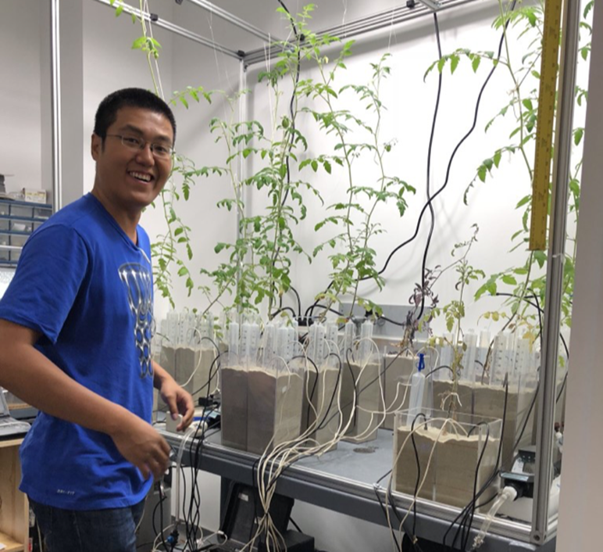What lies beneath? Towards an integrative understanding of plant feedbacks to mismatched distribution of soil resources
Abstract
Most plants derive their water and nutrient needs from soils, where the resources are often scarce, patchy, and ephemeral. In natural environments, it is not uncommon for plant roots to encounter mismatched patches of water-rich and nutrient-rich regions. Such an uneven distribution of resources necessitates plants to rely on strategies that allow them to explore and acquire nutrients from relatively dry patches. We conducted a laboratory study to provide a mechanistic understanding of the biophysical factors that enable this adaptation. We demonstrated that nutrient uptake is not reduced by soil dryness, provided that the whole plant has access to sufficient water elsewhere in the root zone. Using high-frequency water potential measurements, we observed nocturnal water release by roots that inhabit dry and nutrient-rich soil patches, which is commonly known as hydraulic redistribution (HR). Our results indicate that roots facilitate HR by increasing root-hair density and length and deposition of organic coatings that alter water retention. Therefore, we conclude that biologically-controlled HR is critical for nutrient acquisition under mismatched resource distributions. Based on our findings, we proposed a nature-inspired nutrient management strategy for significantly curtailing water and air pollution from intensive agricultural systems.
Bio
 |
Jing Yan is an environmental soil physicist by training. He is broadly interested in developing basic and applied research of soil physics to promote food, water security and healthy ecosystem services. He gained his Ph.D. degree in Plant and Soil Sciences from University of Delaware. After graduation he joined University of California, Merced, for his postdoctoral training. His postdoctoral research is under the direction of Dr. Teamrat Ghezzehei, mainly focusing on rhizosphere nutrient and water dynamics. In addition to performing research, at the University of California, Merced, he actively promotes an interdisciplinary research community through serving as organizer of Enviro-Lunch seminar-series and postdoctoral ambassador to unite different scientific disciplines and graduate programs. |



